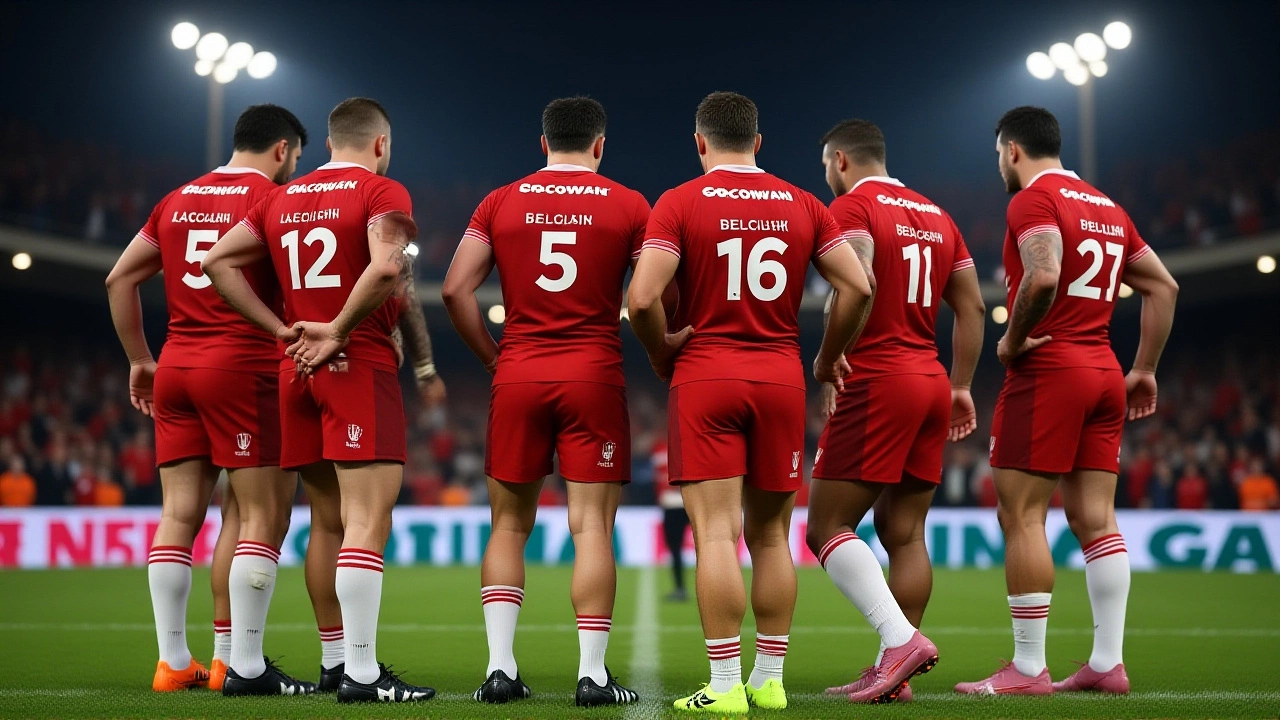Mark Jones, the beloved Welsh dual-code rugby icon known to teammates as 'Scooby,' died suddenly of a heart attack on Thursday, May 22, 2025, at age 59 while working out at his local gym in the Middle East. His passing came just months before his 60th birthday and sent shockwaves through the rugby world—especially in Wales, where fans were still riding the high of their dramatic 2025 home win over England. Jones wasn’t just a player; he was a bridge between eras, a hard-nosed forward who thrived in rugby union’s amateur days and then became a cornerstone of Wales’ fledgling professional rugby league squad.
A Life Between Two Codes
Mark Jones began his career in the gritty, mud-splattered world of Welsh rugby union, playing for Tredegar before joining Neath RFC in the late 1980s. There, he earned a reputation as one of the toughest enforcers on the pitch—15 caps for Wales in union, all before the game turned professional in 1995. But when the sport opened its doors to paid athletes, Jones made a bold move: he switched codes. In 1990, he joined Hull FC, then one of rugby league’s powerhouse clubs. His transition wasn’t just a career shift—it was a statement. He brought the same physicality and grit to the 13-man game, quickly becoming a fan favorite.
By 1991, he was representing Wales Rugby League in their comeback match against Papua New Guinea. Over the next five years, he played 11 times for Wales in league and earned one cap for Great Britain. He was a key figure in the 1995 Rugby League World Cup squad and also featured in the 1996 World 9s tournament in Fiji. For many, Jones embodied the spirit of Welsh rugby league during its most passionate, underfunded years.
'He Was Like Family'
Teammates remember him not just for his tackles, but for his character. One former 1995 World Cup teammate recalled, "He always called me boss, right up until now." That kind of loyalty, that warmth, is what made him unforgettable. "Everybody loved him as a man first and foremost," the teammate added. "I recently read his book and it’s just so interesting to read about his life... For me, it’s like losing one of the family."
Wales Rugby League president Mike Nicholas, who managed Jones during the 1995 tour of America, said: "He was a terrific tourist and a great guy. A fantastic player and team-mate and he’ll be missed by all who knew him." Nicholas’s words echo across the community—Jones wasn’t just a player; he was a glue that held teams together.
Even after retiring, Jones remained connected. He stayed in touch with old teammates, shared stories, and even wrote a memoir that offered rare insight into the raw, unpolished world of rugby before commercialization. His book, still circulating among fans, is now being passed from hand to hand like a sacred text.

A Poignant Coincidence: Victory Amid Grief
On November 15, 2025, Wales ended a two-year home losing streak against England—not with a dominant performance, but with pure drama. Jarrod Evans, the fly-half, slotted a penalty just after the final hooter. The stadium erupted. Social media lit up with "Jarrod Evans WINS IT!"—a moment fans will replay for years.
But for many, the celebration felt bittersweet. The win came just six months after Jones’ death. Social media tributes flooded in: "Scooby would’ve loved this," one fan wrote. "He’d have been in the stands, shouting at the refs like always." The timing created an emotional echo: the past and present of Welsh rugby intertwined in a single, unforgettable afternoon.
While neither Wales Rugby League nor the Welsh Rugby Union has yet announced an official memorial, insiders say a tribute is all but certain at Wales’ next international fixture. Neath RFC, where Jones made his name, is reportedly planning a minute’s silence and a jersey display in his honor.
Why Mark Jones Matters
Mark Jones played in a time when rugby wasn’t televised, when players held day jobs, when loyalty meant more than contracts. He didn’t chase fame—he chased the game. His dual-code status wasn’t just a statistic; it was a testament to his versatility, his courage, and his love for the sport in all its forms.
His death comes at a time when rugby is struggling to reconnect with its roots. In an age of million-dollar salaries and corporate sponsorships, Jones reminds us that the soul of the game lives in the grit, the camaraderie, the unsung heroes who showed up every week because they loved it—not because they were paid to.

What’s Next?
Expect a memorial service in Wales, likely in late spring or early summer, with former teammates from both codes expected to attend. A plaque at Neath RFC’s ground is already in planning. Meanwhile, fans are calling for a posthumous induction into the Wales Rugby League Hall of Fame.
For now, the game goes on. But in every scrum, every tackle, every last-minute kick, there’s a quiet reminder: some legends don’t retire. They just become part of the fabric of the game.
Frequently Asked Questions
How did Mark Jones contribute to both rugby union and rugby league?
Mark Jones earned 15 caps for Wales in rugby union with Neath RFC before switching to rugby league in 1990, where he played 11 times for Wales Rugby League and once for Great Britain. He competed in the 1995 Rugby League World Cup and the 1996 World 9s, making him one of the few Welsh players to represent his country at the highest level in both codes during a transitional era for the sport.
Why is his death particularly poignant for Welsh rugby fans?
His passing came just months after Wales ended a two-year home losing streak against England with a dramatic last-second kick by Jarrod Evans on November 15, 2025. For many, the victory felt like a tribute to Jones’ legacy—a moment where the past and present of Welsh rugby converged emotionally, making the win feel both historic and deeply personal.
What was Mark Jones’ role at Neath RFC?
At Neath RFC, Jones was known as one of the hardest-hitting enforcers of his era, playing a physical, no-nonsense game during the pre-professional years of Welsh rugby union. His 15 appearances for Wales while at Neath cemented his reputation as a local legend who embodied the grit and pride of Welsh club rugby before the game went global.
Will Mark Jones be honored officially by Welsh rugby authorities?
Though no formal announcement has been made, insiders confirm that both Wales Rugby League and Neath RFC are planning tributes for his next international fixture, including a minute’s silence and potential jersey retirement. Fans are also pushing for his induction into the Wales Rugby League Hall of Fame, citing his dual-code impact and enduring influence.
What made Mark Jones stand out as a person, not just a player?
Teammates consistently described him as warm, loyal, and deeply connected to his squad—calling him "one of the family." Even years after retirement, he stayed in touch, called everyone "boss," and shared his life story through his memoir. His character, not just his stats, made him unforgettable in a sport that often forgets its heroes.
